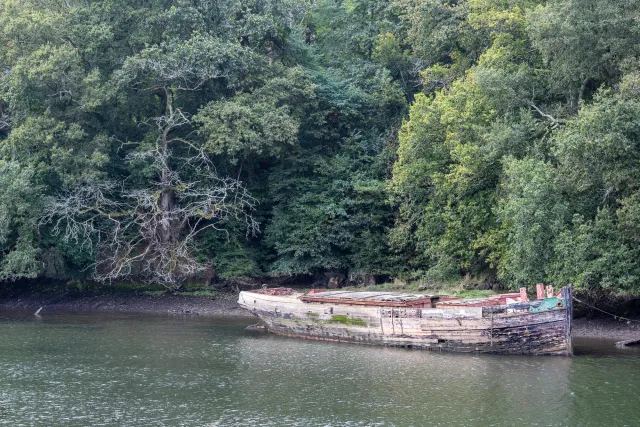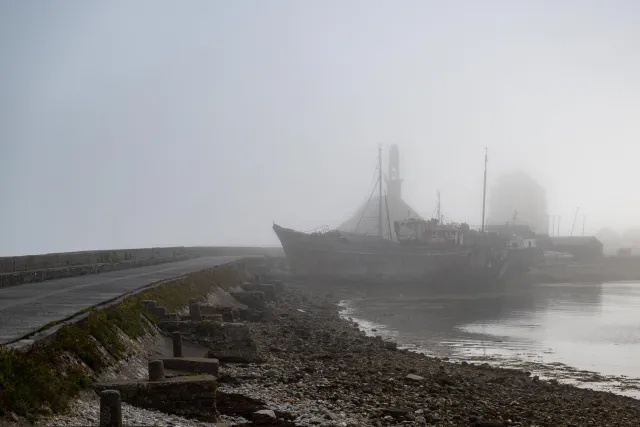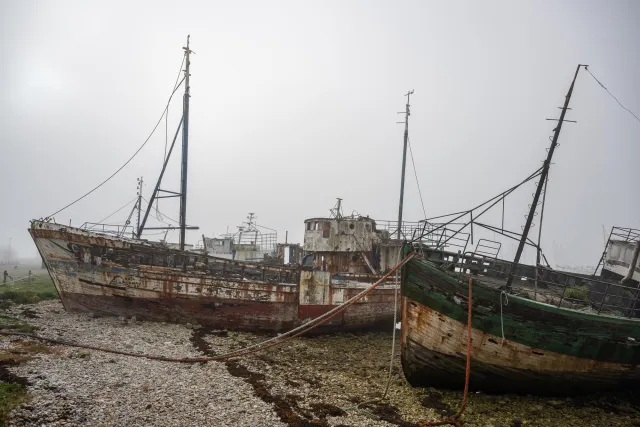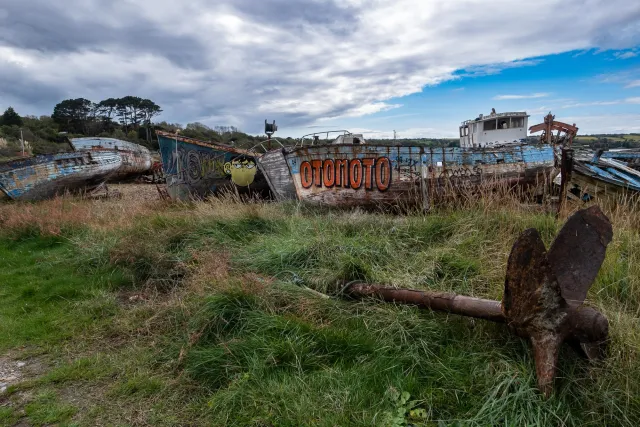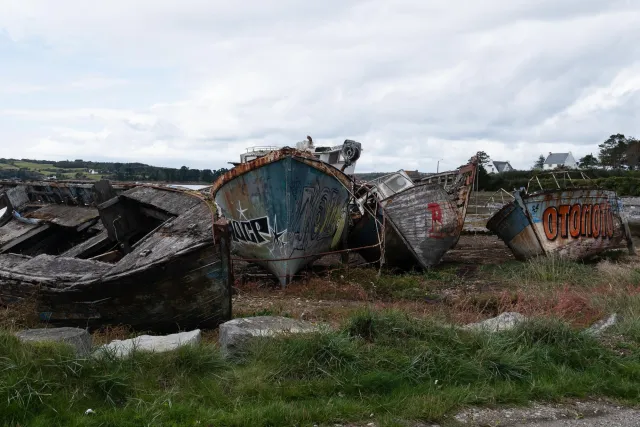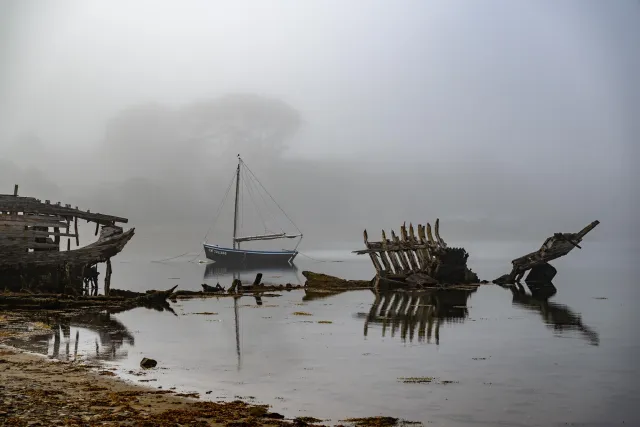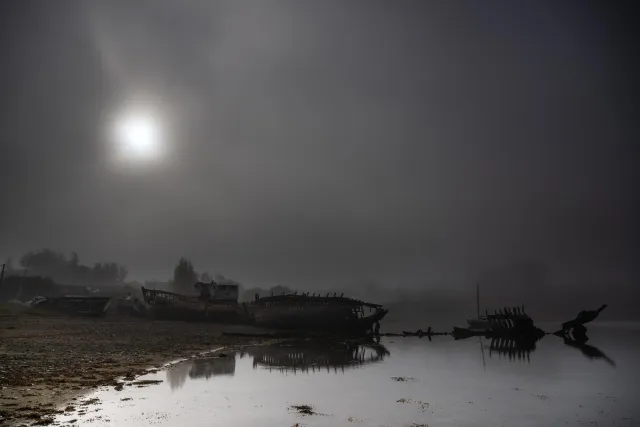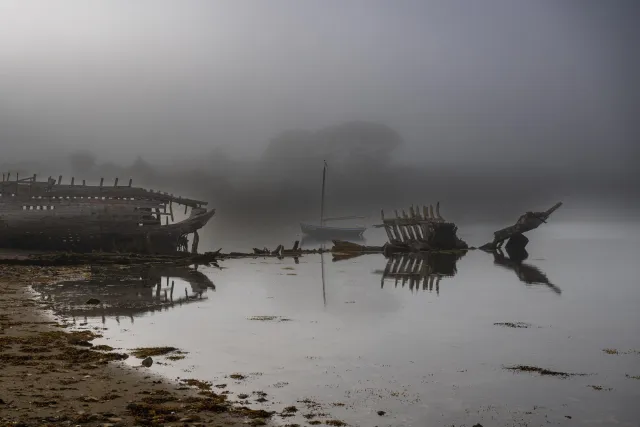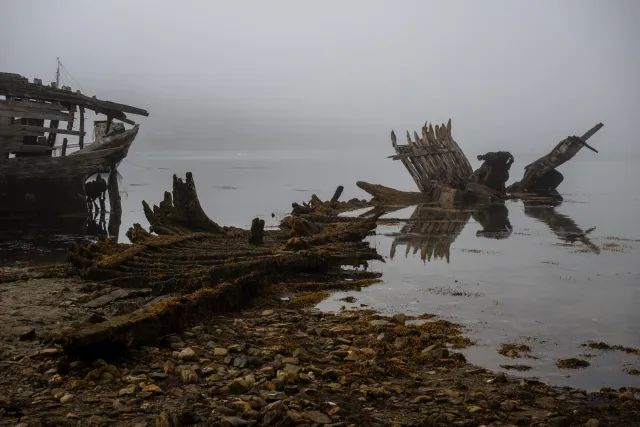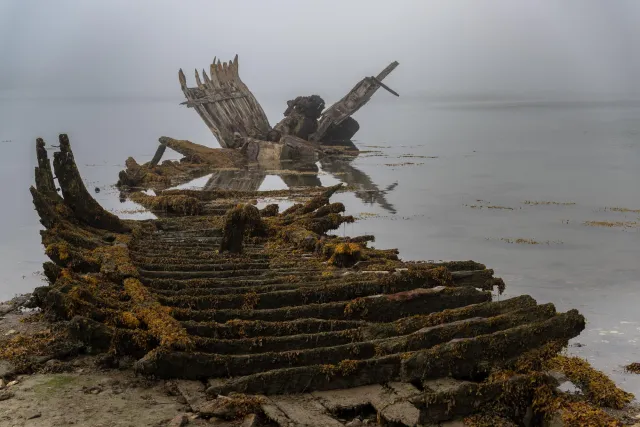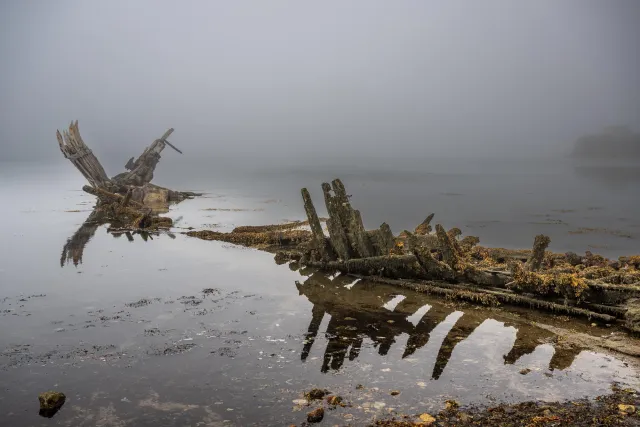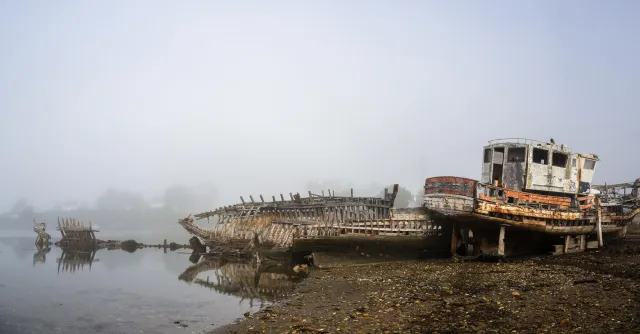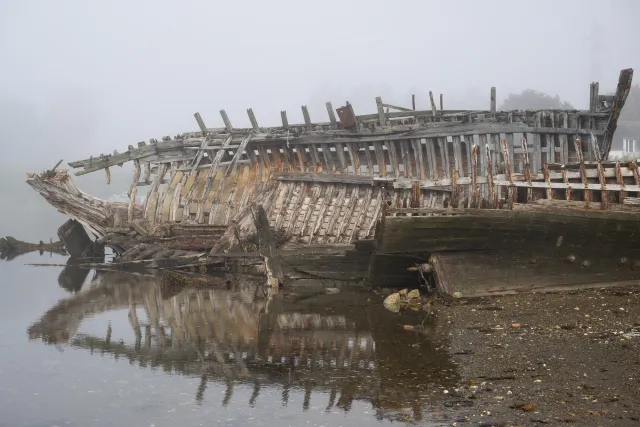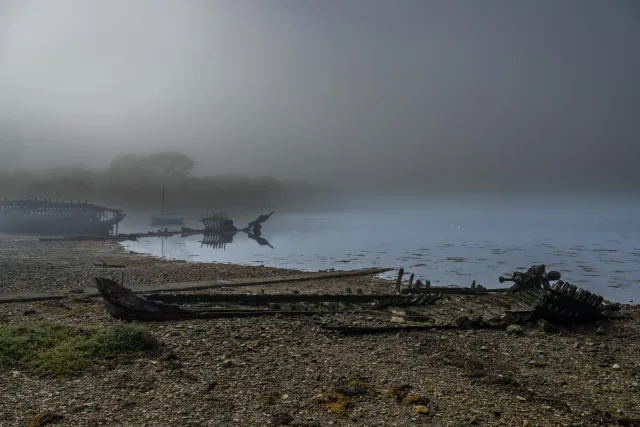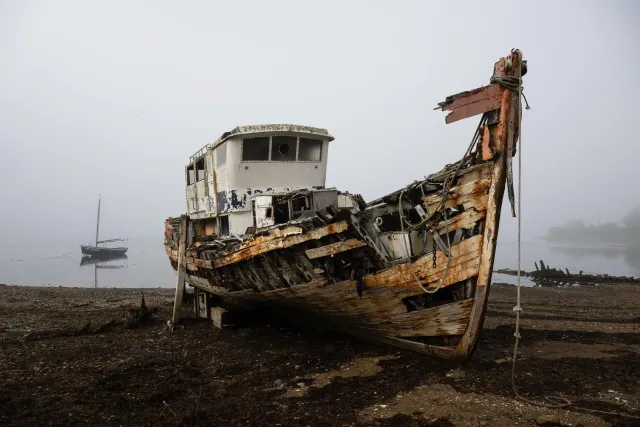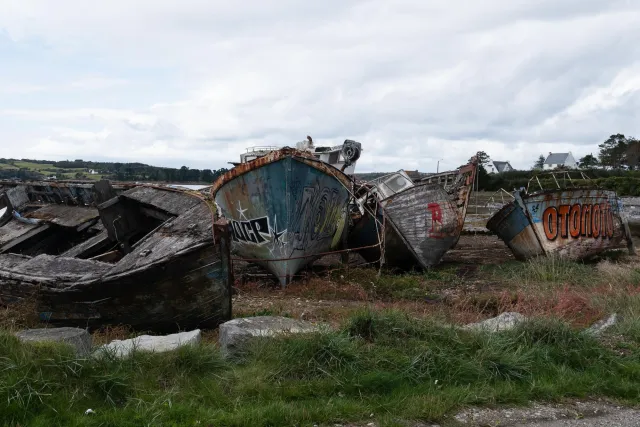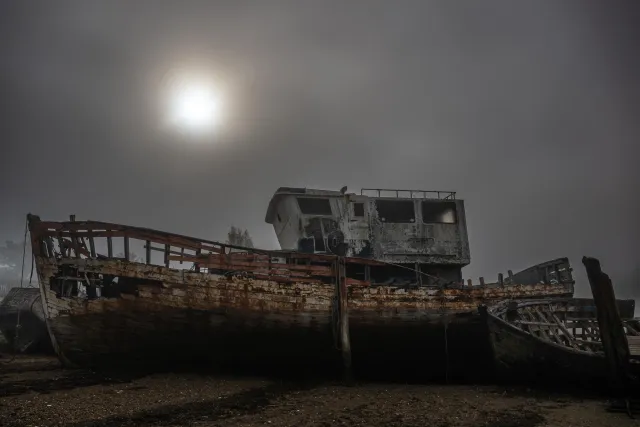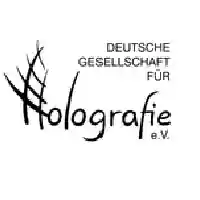Occasionally, you can see isolated shipwrecks on coasts or in port facilities such as Camaret sur Mer and Douarnenez in Brittany. But a whole ship graveyard is something extraordinary and when the fog drifts through the ship skeletons, you inevitably think of the Devil's Sea in the north of Norway or the stories about the spooky sea creatures on the Faroe Islands.
You also think of the extensive maps of the sunken ships around Cape Horn, which freed us in Tierra del Fuego from the desire to circumnavigate the Cape. But the ships in the Cimetière de bateaux de Rostellec near Crozon are very different: they are not lying on the bottom of the ocean after accidents, but have obviously made it to their final resting place on land after stormy years at sea.
Like gnawed bones, the last remains of once proud four-masters rise out of the sea, and their reflections in the calm water give an indication of their former grandeur. Even if the fog creates a rather morbid atmosphere, it is also the history of this area that is fascinating. Some of the boats stranded in Rostellec date from the time of the Auguste Tertu shipyard (1957-1981), others are more recent, such as the two barges Averse and Ondée. In addition, Auguste Tertu's son Pierre bought numerous boats in the 1980s to restore them.
Today, maritime activities in Rostellec have almost completely disappeared: the Tertu shipyard closed in 1981. The waterfront is best known for its boat graveyard, which is divided into two parts. The first is located at the top of Anse de Rostellec beach. The second, towards the camp, used to include the Averse and the Ondée (two water tankers used in the 1980s to supply the islands of the Iroise Sea and Île Longue). These two boats are no longer visible.


